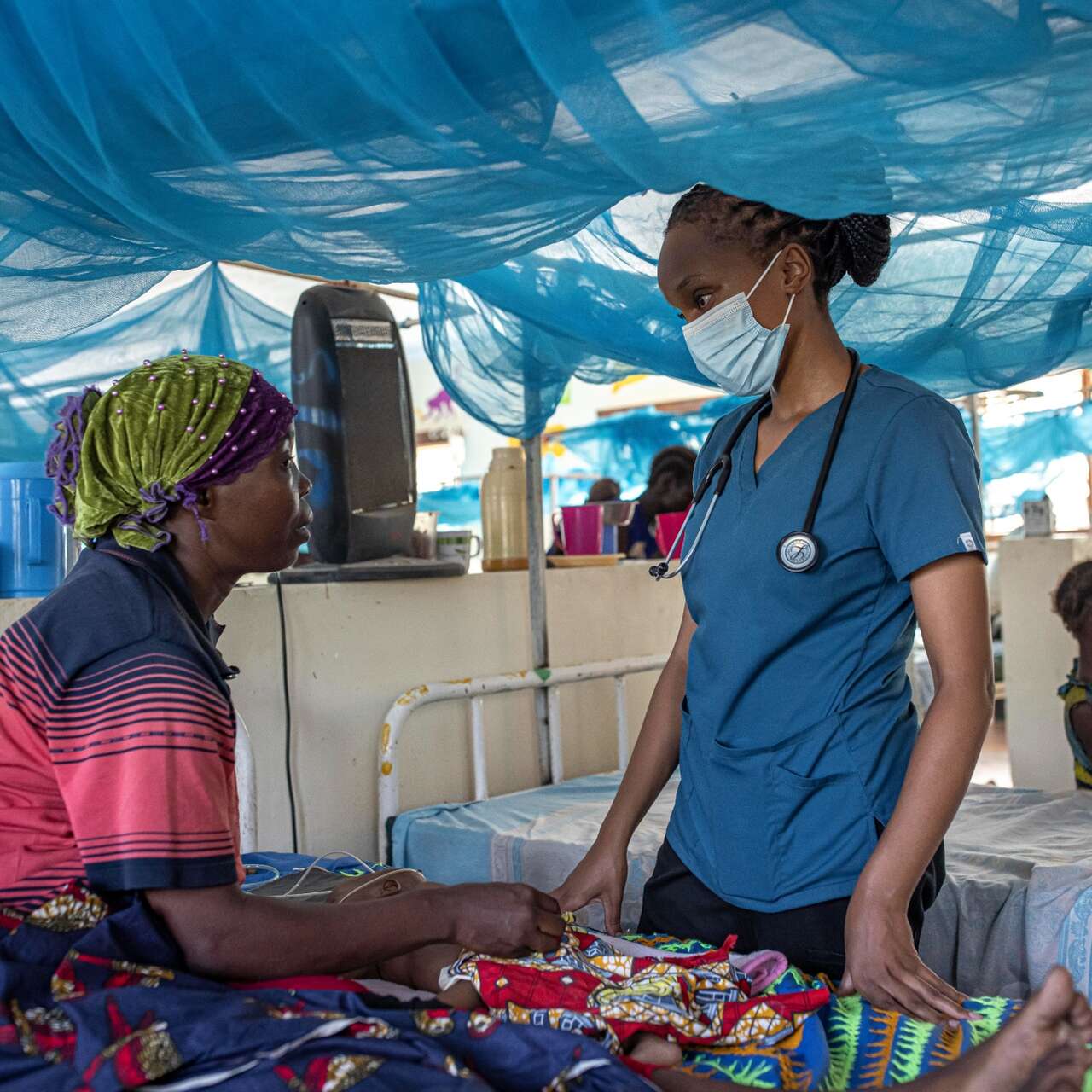
What is mpox and how can we prevent its spread?
The IRC is on the ground in the DRC, Burundi and Uganda working to curb the spread of mpox and treat those affected.

The IRC is on the ground in the DRC, Burundi and Uganda working to curb the spread of mpox and treat those affected.
The World Health Organization (WHO) has declared the growing mpox outbreak, formerly known as Monkeypox, a public health emergency of international concern.
The mpox outbreak originated in the Democratic Republic of Congo (DRC) and is spreading rapidly across central Africa. On August 15, 2024, a case was confirmed in Europe—sparking memory of the 2022 mpox outbreak that impacted 122 countries.
The International Rescue Committee (IRC) is scaling up our response in affected communities to help prevent the spread of the disease and help those affected survive, recover and rebuild their lives.
Mpox is a virus found primarily in central and western Africa that can infect humans and animals. In 2023, a more severe strain of the disease—known as clade 1b—was identified in the DRC and is now spreading rapidly across the region.
The DRC has recorded more than 12,000 suspected mpox cases and 447 deaths between January and mid-July 2024. The disease has also spread to other countries where the IRC operates including Burundi, Kenya and Uganda—and to Europe.
Symptoms of mpox include fever, headache, muscle aches, swollen lymph nodes, chills, exhaustion and a distinctive rash that can look like pimples or blisters. Previous outbreaks of clade 1 mpox have had a mortality rate of 10%.
Mpox can spread through direct contact with an infected person or animal, as well as through direct contact with materials contaminated by the virus.
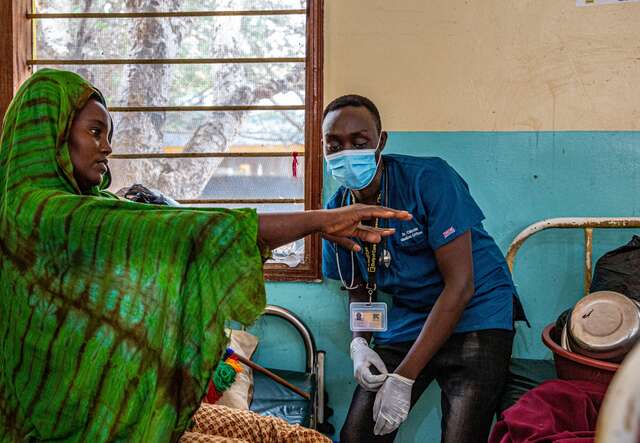
The CDC warns that people with weakened immune systems, young children, individuals with a history of eczema and those who are pregnant are particularly at risk of mpox. The IRC is also deeply concerned about the wellbeing of displaced people, who often lack access to the water, sanitation and health care facilities needed to prevent the spread of disease and stay safe.
The IRC is monitoring the mpox outbreak in Africa and has launched responses in the DRC, Burundi and Uganda. Our teams are also preparing to scale up our response in mpox-affected countries, like Kenya, if necessary.
The DRC is bearing the brunt of the global mpox outbreak. Protracted displacement and a weakened health system have created conditions conducive to the rapid spread of the virus.
“In the face of these challenges—lack of awareness about mpox among the population, the absence of prevention mechanisms, and the shortage of on-the-ground actors—the IRC is conducting awareness-raising activities and measures to prevent and control the spread of infection,” says Heather Kerr, IRC country director in DRC.
The IRC’s response will focus on supporting displaced people living in three camps near the city of Goma in eastern DRC.
Our efforts will include:
Learn more about our work in the DRC.
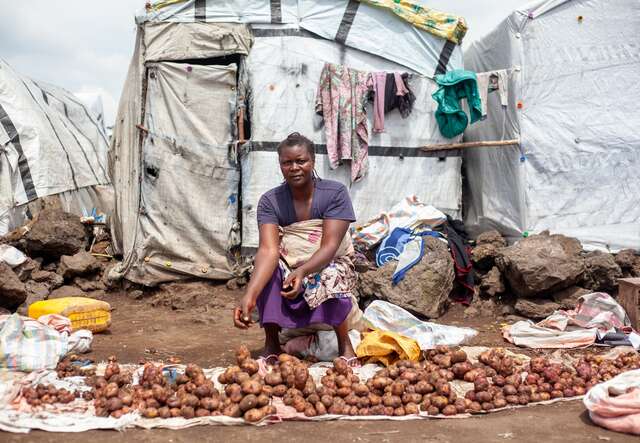
Heavy seasonal rains in April 2024, exacerbated by the El Niño weather pattern, caused severe flooding that impacted nearly 250,000 people and led to a cholera outbreak in several provinces of Burundi. Conditions in the country have left families exceptionally vulnerable to the spread of mpox.
In response to the escalating mpox outbreak, the IRC is scaling up its emergency response in Burundi by:
Learn more about our work in Burundi.
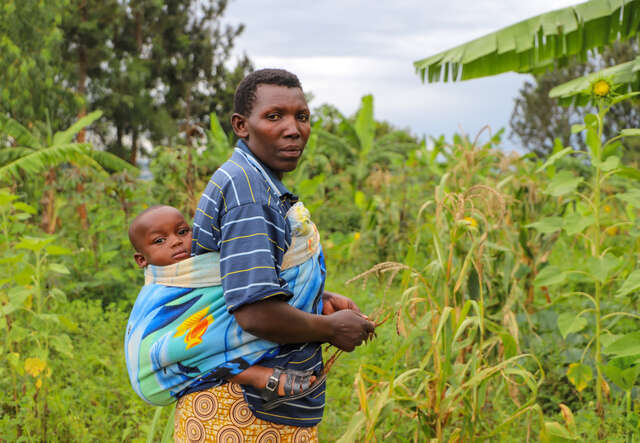
The IRC is on the ground in Uganda, where more than 350 cases of mpox have been confirmed across 38 districts, working with our partners to improve health and nutrition outcomes for refugees and members of the communities that host them.
“The IRC, with support from the European Union, has over the last two months been implementing interventions in response to this outbreak, including screening over 400,000 people at different health facilities, reception centers, and points of entry and training nearly 5,000 health workers and village health team members,” says IRC Uganda Country Director, Elijah Okeyo.
“However, more still needs to be done regarding resources for the needed infrastructure, equipment, and other relevant interventions to prevent further transmission and spread especially among vulnerable populations on the move.”
In Uganda, the IRC and our partner, Medical Teams International (MTI), are working together on initiatives to lower the humanitarian impact of disasters, particularly in areas impacted by recent refugee influxes and ongoing health challenges. We are training health care staff to identify cases of mpox, delivering medical supplies, and engaging communities on the risks of mpox and the best practices for staying healthy.
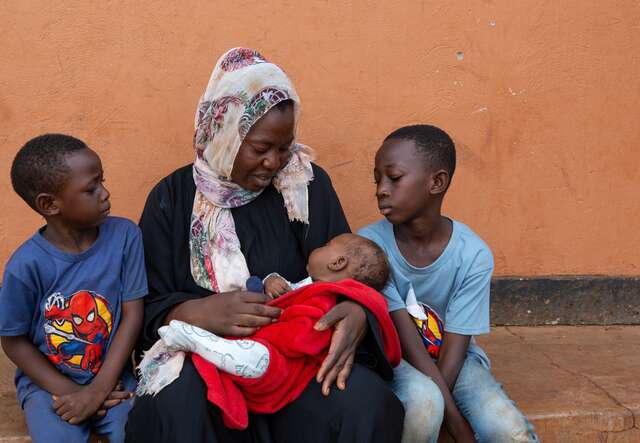
The IRC is on the ground supporting communities affected by mpox in the DRC, Burundi and Uganda. We are monitoring the spread of the disease and are prepared to scale up our services in places like Kenya and Uganda—where the IRC is already providing support.
*Last name excluded for privacy